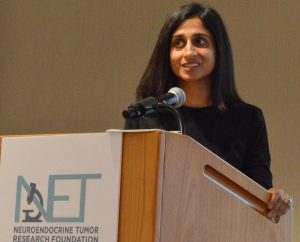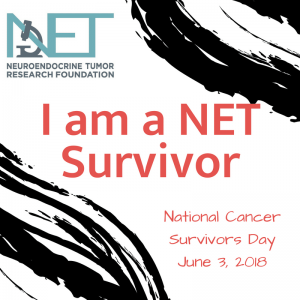
NETRF Works to Take PRRT to Next Level
The Neuroendocrine Tumor Research Foundation (NETRF) has invested more than $1.5 million in advancing a precision form of radiation therapy for NETs called Peptide Receptor
Make a gift before the end of the year to drive research breakthroughs in 2026.

The Neuroendocrine Tumor Research Foundation (NETRF) has invested more than $1.5 million in advancing a precision form of radiation therapy for NETs called Peptide Receptor

Summer sun safety tips for cancer survivors. The signs and symptoms of heat-related illness.

Two NETRF-funded researchers received Career Development Awards at the 2018 annual meeting of the American Society of Clinical Oncology (ASCO), one of the largest and

by Stacie Chevrier, NET Cancer Blogger Every Sunday on the O Network’s Super Soul Sunday, Oprah asks her guest, “What do you know for sure?” This

Dispelling Myths about Palliative Care The goals of palliative care according to Steven Pantilat, MD, University of California, San Francisco, are pretty straightforward—to do as

https://www.youtube.com/watch?v=k1906SABias The Neuroendocrine Tumor Research Foundation (NETRF) has invested more than $1.5 million in advancing a precision form of radiation therapy for NETs called Peptide Receptor

Can an epigenetic enzyme under the right conditions contribute to the growth of cancer cells? If so, what happens if the enzyme is removed? Can

National Cancer Survivors Day is Sunday, June 3, 2018 Show you are a NET survivor and celebrate life, acknowledge those living with this rare disease,

Having arrived seven weeks ago as the new Chief Development Officer, I have been so inspired by the team spirit of NETRF. From our dedicated

After you’ve been told you had food poisoning or were in menopause, but you had cancer….how do you learn to trust your doctor again? NET specialist Pamela Kunz, MD, talks about trust issues between doctors and patietnts.